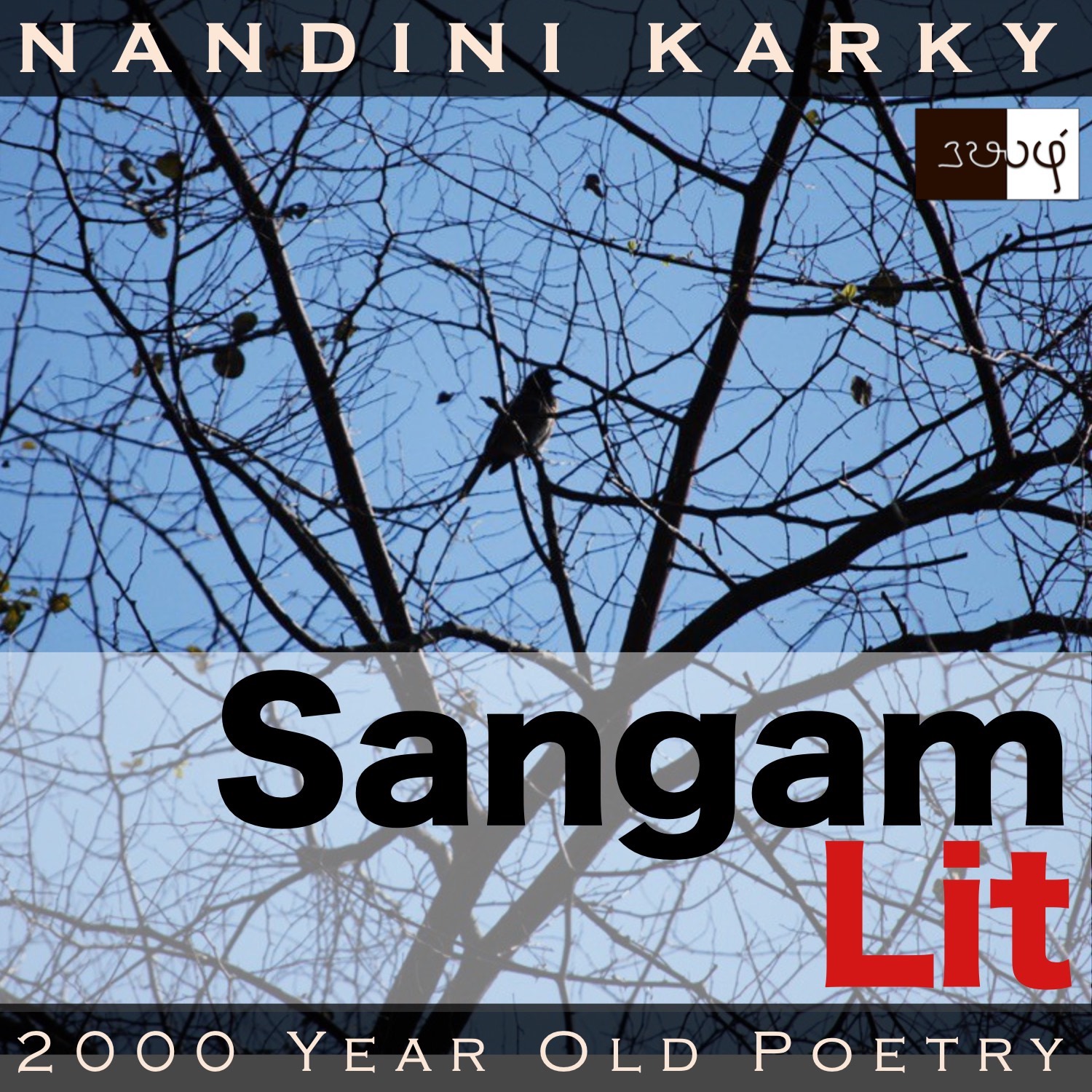Podcast: Play in new window | Download
Subscribe: Apple Podcasts | Spotify | Amazon Music | Android | iHeartRadio | TuneIn | RSS | More

In this episode, we perceive pithy words about the fleeting nature of life, as depicted in Sangam Literary work, Natrinai 314, penned by Mupper Naakanaar. The verse is set in the drylands of ‘Paalai’ and speaks in the voice of the lady, conveying her anguish over the man’s parting away.
”முதிர்ந்தோர் இளமை அழிந்தும் எய்தார்;
வாழ் நாள் வகை அளவு அறிஞரும் இல்லை;
மாரிப் பித்திகத்து ஈர் இதழ் அலரி
நறுங் காழ் ஆரமொடு மிடைந்த மார்பில்,
குறும் பொறிக் கொண்ட கொம்மை அம் புகர்ப்பின்
கருங் கண் வெம் முலை ஞெமுங்கப் புல்லிக்
கழிவதாக, கங்குல்” என்று
தாம் மொழி வன்மையின் பொய்த்தனர், வாழிய-
நொடி விடுவன்ன காய் விடு கள்ளி
அலங்கல்அம் பாவை ஏறி, புலம்பு கொள்
புன் புறா வீழ் பெடைப் பயிரும்
என்றூழ் நீளிடைச் சென்றிசினோரே!
The verse opens with a philosophical thought about old age in the words ‘முதிர்ந்தோர் இளமை அழிந்தும் எய்தார்’ meaning ‘those who are old, after losing their youth, get it back never’. The same vein continues in the phrase ‘வாழ் நாள் வகை அளவு’ meaning ‘the days of one’s life’. From these abstract notions, we turn our attention to ‘மாரிப் பித்திகத்து ஈர் இதழ் அலரி’ meaning ‘the moist petals of wild jasmine that blooms in the rainy season’. Adding to this divine scent, appears the ‘நறுங் காழ் ஆரம்’ referring to the ‘scented paste from a hardy sandalwood tree’. The phrase ‘தாம் மொழி வன்மையின் பொய்த்தனர்’ holds the core of this verse and means ‘his words have become false’, sounding out the disappointment within. We also glimpse at ‘a suffering, lonely pigeon’ in ‘புலம்பு கொள் புன் புறா’. Ending with ‘நீளிடைச் சென்றிசினோரே’ meaning ‘the one who left away to that long path’, the poem invites us to know more.
The man and lady had been leading a happy, married life when the man had to part away to gather wealth. The lady suffers in his absence and says, “He said, ‘Those who age do not get back their youth. And, there is no one who can know the extent of one’s days. So, let my chests fused with the fragrance of the moist petals of the rainy season’s ‘pithikam’ flowers and sandalwood paste embrace the spotted, black-ended, beautiful and desirable bosom of hers and pass nights many’. But, making those words of his, a falsehood, he has left to that winding path, filled with heat, wherein climbing on the branches of a cactus, whose fruits burst akin to the cracking of knuckles, a suffering pigeon coos for its mate. May he live long!” With these words, the lady expresses her dejection, as the man couldn’t keep his promise of not parting with her.
Time to delve into the details! The lady starts by narrating the words the man spoke to her a while ago. He seems to have been in a deeply reflective mood and was talking about how someone who has grown old is not going to get their youth back. He further adds that it’s also true that no one knows the number of days in one’s lifetime. In short, he seems to be mulling over the fleeting nature of youth and life itself. From these intangible concerns, he turns to the real world around him and wishes that he could spend his nights in the reality of the lady’s embrace. The lady says after pronouncing such high words, the man has now made it all, a lie. When we ask her in concern, how so, she points to a long and winding drylands path, where all that stands is a cactus and its thorny bushes. On the branches of this tree, which seems to have fruits that burst open like the cracking of knuckles, climbs a suffering pigeon and calls out to its mate. Why has the lady taken us to this scene of desolation? Only to point out that this is where the man is walking now, after saying those words to her!
The poem highlights something humans have realised ever since they developed cognition. The days of our life are numbered, although we know not that number! The man in the verse seems to know that life is fleeting yet he lets go of love to pursue his goal of earning wealth. Two thousand years later, things haven’t changed much. For we do act, in our quests to possess, as if we will live on, without end. The song seems to throw a spotlight on this age-old nature of humans and asks like the lady, ‘Why the lie?’ Wise is the person who can find the path to live life without making the inviolable truth about life’s impermanence, a lie to oneself and others!




Share your thoughts...